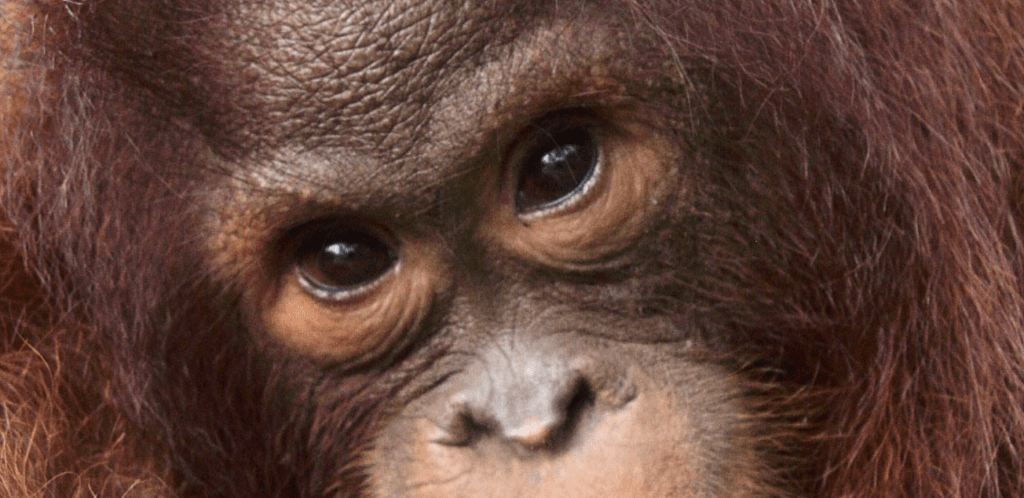Illegal trade in wild animals is the fourth most common crime and one of the biggest threats to the orangutan's survival. The orangutan is protected by conservation laws in both Indonesian and Malaysian rainforests. Yet the orangutan is still the most traded primate in the world. More than 1000 illegal trades and activities involving orangutans occur every year.
The exact extent of illegal activities is difficult to calculate. Most reports and studies within illegal trade in orangutans are based on those instances in which the illegal trade has been uncovered. At the same time, statistics from Convention on International Trade in Endangered Species (CITES) only include international trades, while national trades are unexplored. The actual extent of the illegal trade in orangutans may therefore be even greater than what has been estimated.
The most recent estimates were published in 2016 based on a targeted study of the world’s great apes (gorillas, orangutans, chimpanzees, and bonobos). The study concludes that 56% of all illegal trade in great apes covers trade in orangutans. Unsurprisingly, the export is primarily facilitated in Indonesia and Malaysia, the natural habitats of the orangutan.
Thousands of innocent victims of illegal trade every year
According to CITES, 1019 individual cases of illegal trade in orangutans have been registered between 2005 and 2011. Another report from the UN Environment Programme (UNEP), who also monitors trade in wild animals, estimates that 6000 great apes are captured or killed every year for the purpose of selling or keeping them as pets. Up to 70% of these victims are orangutans. Reports also conclude that the number of killed orangutans in connection with their capture may easily be twice as big. The infant orangutans are protected only by their mothers, while other infant primates are protected by entire groups of primates.
A billion-dollar industry driven by demand and increased deforestation
Thailand, Malaysia, Singapore, and Taiwan have been identified as hubs for the import of orangutans, but some European and Middle Eastern countries are also important markets in the illegal wildlife trade.
As with any trade, the illegal wildlife trade is driven by supply and demand. With regards to orangutans, the supply has increased gradually because the extensive deforestation and increasing number of plantations force the orangutans out of their natural habitats and closer to humans.
Studies on the illegal wildlife trade reveal that local hunters are paid small amounts for reselling an orangutan. However, they can earn thousands via intermediaries and a very shady market. In 2016, for instance, a story circulated of two orangutans put on the market for DKK 140,000 in Thailand. More recently, the story of a Russian tourist attempting to smuggle a drugged orangutan, two geckos, and five lizards out of Indonesia in March of 2019 has made global headlines. UNEP estimates a net worth of USD 50-150 billion for the entire category of ‘wild life trade’ on a global scale.

Several tragic stories and a few lucky cases
Behind the dreadful statistics are several tragic stories. Illegal wildlife trade often results in pet orangutans living under unnatural and extreme conditions. Some orangutans are sold to breeding centres in Egypt and Thailand, and others are sold to private and public zoos for entertaining exhibitions for tourists. The vast majority of traded orangutans fall victim to cruelty and abuse, as their owners try to make them perform before crowds or behave like a pet.
A few of the illegal trades are exposed and tried in court, but even so, the orangutan falls victim to long trials. Long trials bear with them long and dreadful quarantines for the orangutans until their surrender. The quarantines have been known to last for more than 5 years.
At Save the Orangutan, we have helped ensure the rescue of several orangutans and their return to Borneo via our partner BOS Foundation. In Borneo, they can commence a long but safe and secure rehabilitation and training until they can be reintroduced to the rainforest.
Sources:
CITES - Convention on International Trade in Endangered Species of Wild Fauna and Flora
STOLEN APES - Report from UNEP and GRASP
APES IN DEMAND - TRAFFIC report 2016
BBC article: Data and statistics on illegal trade
DR article: Trade in orangutans uncovered (Undercover-betjente redder to babyorangutanger) (Danish)